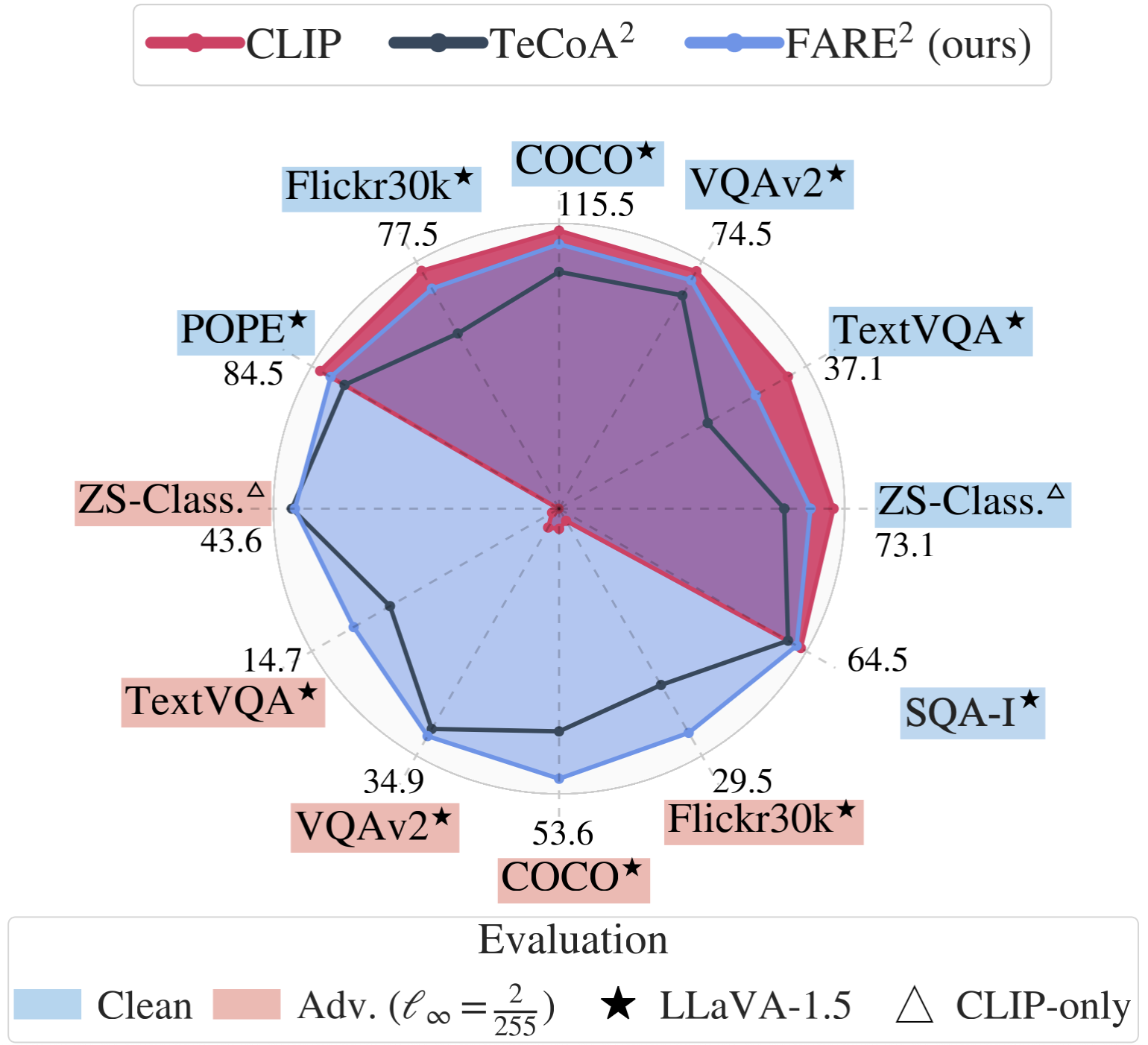Robust CLIP: Unsupervised Adversarial Fine-Tuning of Vision Embeddings for Robust Large Vision-Language Models
Multi-modal foundation models like OpenFlamingo, LLaVA, and GPT-4 are increasingly used for various real-world tasks. Prior work has shown that these models are highly vulnerable to adversarial attacks on the vision modality. These attacks can be leveraged to spread fake information or defraud users, and thus pose a significant risk, which makes the robustness of large multi-modal foundation models a pressing problem. The CLIP model, or one of its variants, is used as a frozen vision encoder in many vision-language models (VLMs), e.g. LLaVA and OpenFlamingo. We propose an unsupervised adversarial fine-tuning scheme to obtain a robust CLIP vision encoder, which yields robustness on all vision down-stream tasks (VLMs, zero-shot classification) that rely on CLIP. In particular, we show that stealth-attacks on users of VLMs by a malicious third party providing manipulated images are no longer possible once one replaces the original CLIP model with our robust one. No retraining or fine-tuning of the VLM is required. The code and robust models are available at https://github.com/chs20/RobustVLM
PDF Abstract



 ImageNet
ImageNet
 MS COCO
MS COCO
 Visual Question Answering
Visual Question Answering
 TextVQA
TextVQA